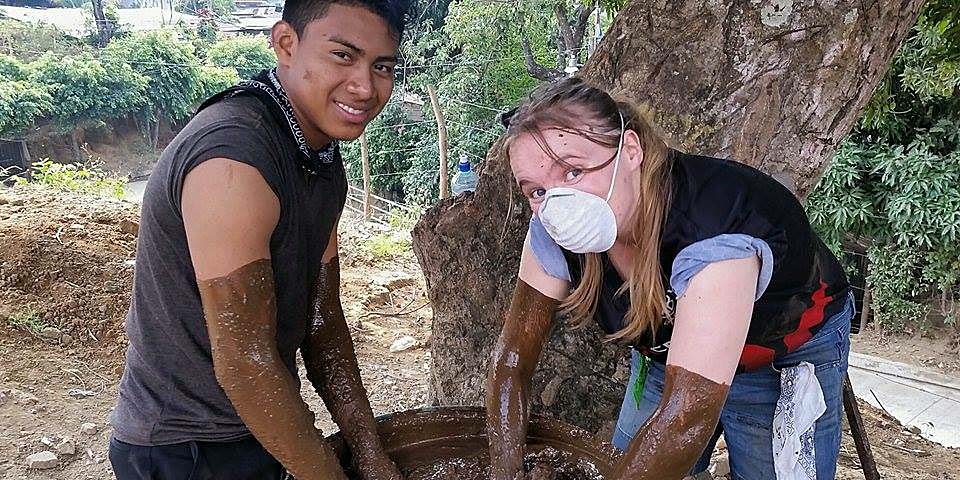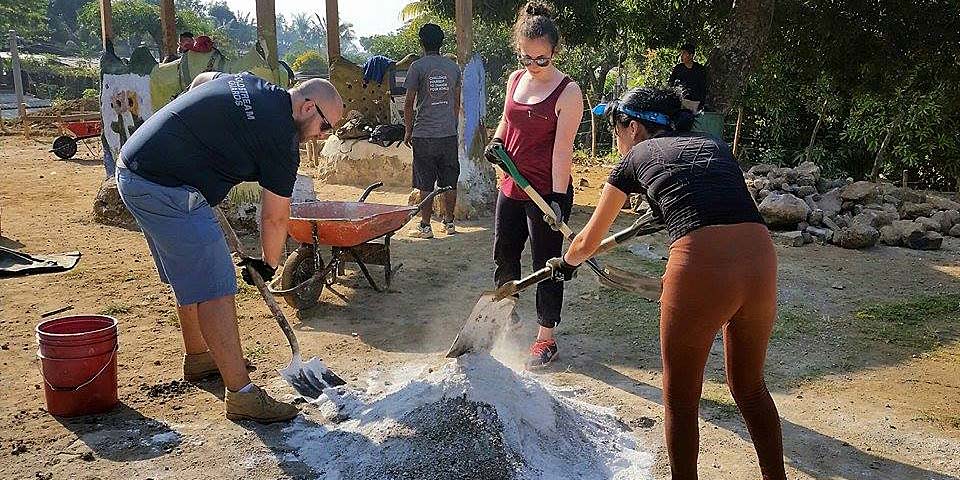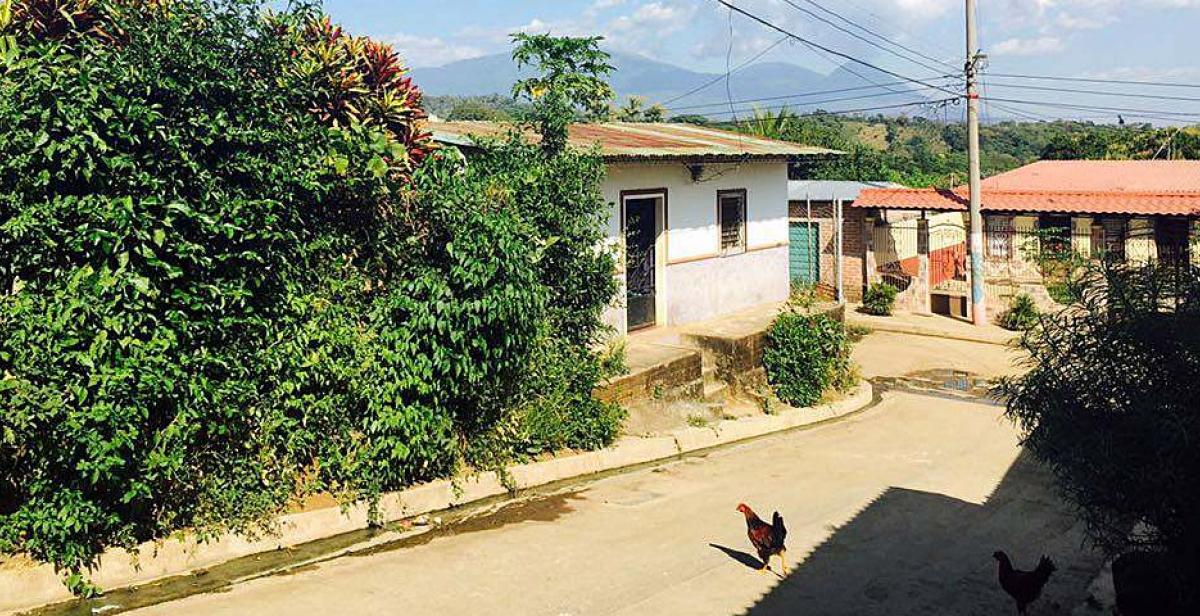Wednesday 20 January
Lying in a hammock, I swing drowsily from side to side as a cord hanging from the ceiling brushes my knees. It’s morning, and the other volunteers are adventuring on a mountain, collecting bamboo and clay for our bio-construction project.
It feels quiet and cool; concentrating, I hear a cacophony of noises that seemed deafening when we first arrived. As the hammock swings left, the refrigirator’s buzz grows louder. Each right swing takes me closer to the back door, where a gushing pipe fills the pila with today’s water, while the cockerels and wild birds tweet, warble and doodledoo.
I’m a pendulum, swinging between modernity and nature - and so is Santa Catarina.The taps don’t always flow, but the fridge keeps your juice cool. You handwash your clothes and shower with a bucket, but your brother has nappies and toys that light up. You have to buy water in bottles because 90% of El Salvador’s water supply is contaminated, but you can watch telenovelas in widescreen. On the street outside, a man delivering propane bottles by motorcycle passes a horse carrying more natural materials. There are lizards, mosquitoes and cockroaches - but also children in Minions t-shirts playing chucha (tag).
School is well-attended and in true El Salvadoran style allows three hours for lunch. The doctor’s surgery looks like any other house from the outside. Inside, cabinets display the medications available to those with enough money to buy them.
During my visit there, a female nurse greeted me. She wore a lab coat, and kept her stethoscope in a biscuit tin. Despite having been here for less than two weeks, I had caught Chikungunya - a mosquito-carried virus which causes a red rash and fever. There is no vaccine, so I am taking fever preventatives and strong steroids. I woke up with a burning desire to do sit ups, and was sorely disappointed when informed that I would not be allowed to hack bamboo with a machete all day.

Sunday 24 January
Sitting in the back of a packed minibus, arm hanging lazily out the window, I am thinking again about the identity of El Salvador, and the contrast from home.
We are returning after a day trip to the beach - welcome relief after a hard week’s work. It’s midnight in the UK. My family are in bed, under at least thirty togs of duvet each while the fire burns in the hearth downstairs. Meanwhile, here I am sitting with my face to the wind, eyes straining against the yellow rays of the sun.
When I left my hometown, that yellow ball of fire in the sky felt about as real and present - after fifty straight days of rain - as Merlin’s beard. Here, I have not seen rain all week. The late afternoon throws shadows from trees and lorries, bamboo shacks and half-built breezeblock offices. We overtake buses like those from American high-school dramas. I stick my tongue out at a child standing on the back of a pick-up truck with twenty others, his arm wrapped loosely around his mother’s waist as they speed along.
You don’t get that kind of thing in the UK, nor the piles of rubbish burning by the side of the road. I haven’t seen a hatchback all afternoon, and every car has tinted windows. But not everything is different.
Venturing out to the living room late last night, I found my host mother sitting with a small table over her feet and scissors in hand. She covers her daughter’s school books with recycled clear plastic, just as my mother did for me, and I in turn did for my younger brother. Every movement shows how much she loves her family, and how much she values the education they receive.
Back in the van, we pass by a farm and I have a dubiously comforting thought. No matter where I go in the world - no matter how far from the hills of Pembrokeshire I stray or how foreign it all seems - cow poo will always smell the same.
I was expecting El Salvador to feel like another world, and though it’s true that I stand out like a very white sore thumb, I can’t help but feel that I am still home.

Written by ICS volunteer Branwen Huges



